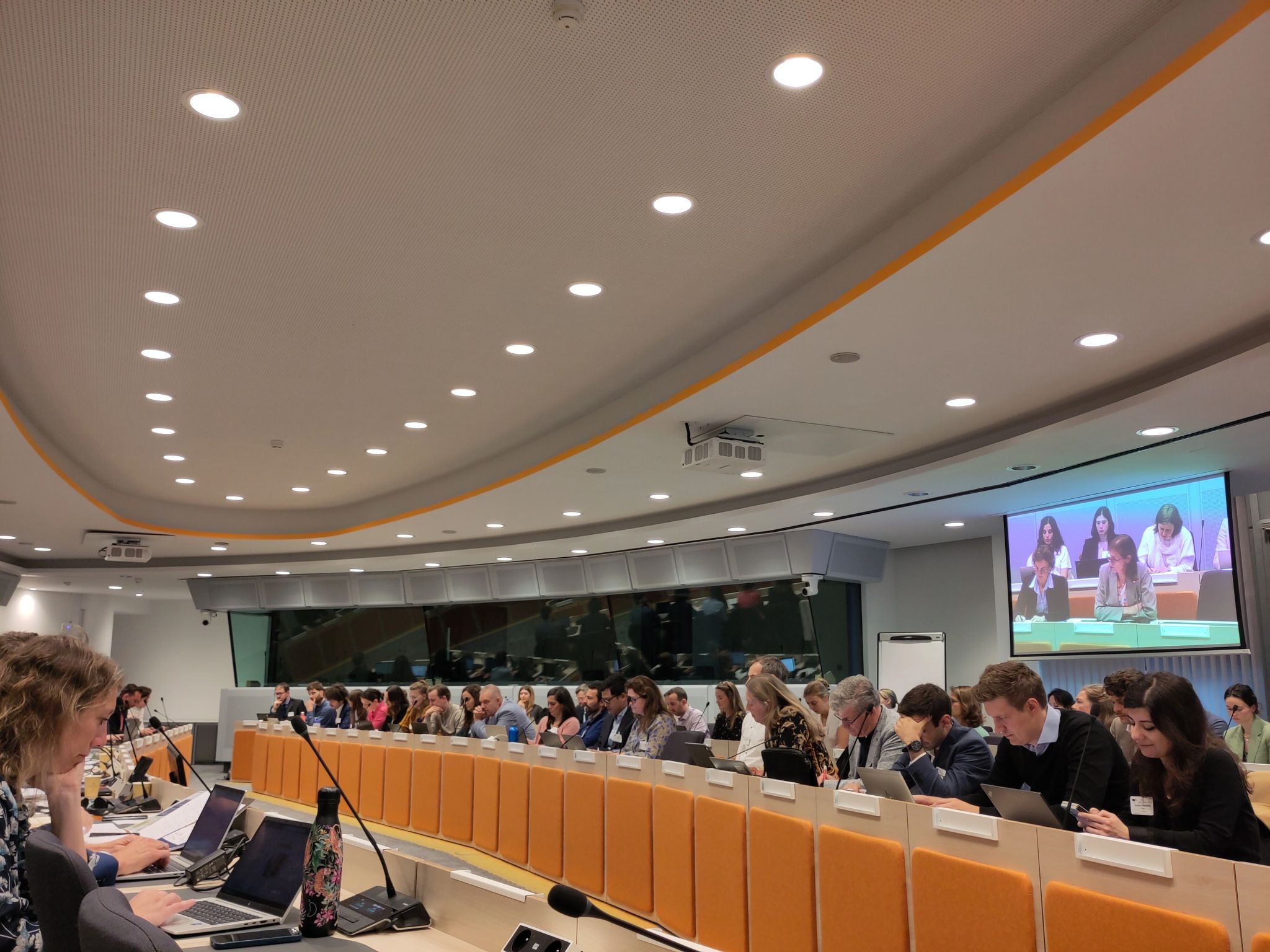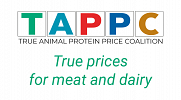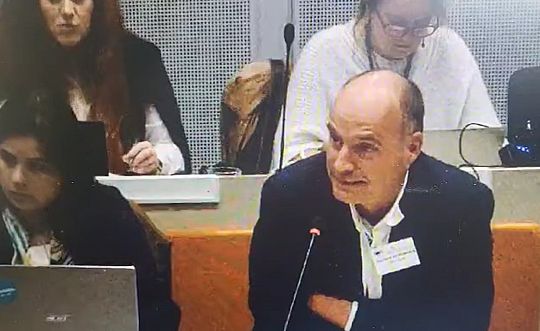EU Commission announces new impact studies on Agriculture-Food ETS carbon pricing
19th June the EU Commission announced new impact studies on a potential new GHG Emission Trading Scheme for the agriculture and food sectors (Ag-ETS or ETS3) during a kick off meeting in Brussels. The EU Commission (Climate Directorate) starts a series of new studies and five technical workshops, to be coordinated by Trinomics, to enable a new policy proposal in 2026 on an Ag-ETS .
The EU Commission will publish the documents and recordings of the five technical workshop on this public website: https://climate.ec.europa.eu/eu-action/carbon-removals-and-carbon-farming_en#:~:text=On%2010%20April%202024,%20the%20European%20Parliament%20adopted%20the%20provisional
Scroll down to: 'Carbon farming in the agri-food value chain' and see the different technical workshops and strategic dialogue meetings.
The title of the event 19th June was: 'Incentivising climate action for a sustainable and competitive agri-food value chain'. Organisations and stakeholders that want to be involved in the technical workshops in the coming year, can register themselves at https://ec.europa.eu/eusurvey/runner/agri-food-climate-technical-workshops. Tentative dates for the workshops are 10th September (policy options), 15th October (on effectiveness), 3rd December (on competitiveness), 4th February 2025 (on cohesion) and 8th April 2025 (on enabling policies). 10th September the first online workshop will probably be held on policy options.
Organisations that want to provide input for the new impact studies, can do this via this email address: agri-food-climate@trinomics.eu
TAPP Coalition proposals for a European ETS for food processing companies (meat/dairy) can be found here (EU Conference on this topic in Brussels) and here (Letter to Ursula von der Leyen).

Downstream Ag-ETS model for slaughterhouses and dairy factories widely supported by companies
During the event, TAPP Coalition director Jeroom Remmers referred to a letter sent to Ursula von der Leyen and others, to support a downstream Ag ETS option for slaugherhouses and dairyfactories. This letter was co-signed by the European Alliance for Plantbased Food (EAPF) that represents companies and NGO's, while TAPP Coalition represents 3000 European companies and many NGO's including farmer organisations. This letter can still be co-signed by companies or non-profits, because the letter will be sent in the autumn to new Commissioners and MEPs. Remmers asked the panelists (including representatives from farmer union Copa Cogeca, FoodDrink Europe, BEUC, WWF and Rabobank) if they are happy to hear about this support from large companies.
Seven reasons why an Ag-ETS model for retail and foodservices is better compared to downstream model
TAPP Coalition director Remmers also asked Trinomics if a new study could be developed on an ETS for retail industries and (large) food services. Maarten Wolters from Trinomics answered this ETS option could be included in new impact studies but that there were reasons not to include it in the first Trinomics report published in November 2023 (later TAPP Coalition heard these reasons are no longer existing). TAPP Coalition developed a 2 pager with 7 reasons why the retail-ETS is better compared to a downstream Ag-ETS, with a 1 pager summary here.
Feedback from stakeholders
Wolters asked Agnese Ruggiero, the representative from FoodDrink Europe how they value the support for the downstream Ag-ETS by large food companies, also part of FoodDrink Europe. She said they have internal discussions on this topic. Edwin Michiels from Copa Cogeca replied that he understands large food companies support the downstream Ag-ETS model that is the most easiest option to implement. Earlier in the event, Diane Boogaard from Rabobank told her company supports the conclusions of the first Trinomics report on Ag-ETS. Given the choice of the five Ag-ETS models presented in the report, Rabobank favors the downstream option for slaugherhouses and dairyfactories, since they are the strongest actor in the food chain. Alex Mason from WWF made clear that a future Ag-ETS would have to be completely seperated from carbon removals in the landuse sector (payments for carbon storage), and an Ag-ETS should be completely seperated from the ETS in the industry and transport sectors. If this is not done, huge risks are foreseen, like rich airline companies deciding which farmers or agricultural regions can still exist or not (eg. by paying for their carbon credits to be out of the market). Carbon removals within an Ag-ETS system are risky to include because such GHG emission reductions are not permanent and can be reversed again (eg first plant trees and later cut them again).
Farmers Union EU Copa Cogeca has not yet a position on Ag-ETS
Copa Cogeca still has no final position on Ag-ETS told Michiels, so the farmers unions now is not opposing an Ag ETS system. Rumours have it that Copa Cogeca wanted to have a position against Ag ETS, but sufficient members are in favor and also see potential benefits from market based systems like ETS. But Michiels had concerns that farmers will have GHG emissions from livestock and from soils and land anyway, whatever will be done in any Ag ETS proposal.
Here are the two background papers on the new impact studies
Agenda_AgriFood_ClimateEvent_19Jun24.pdf
Agri-food climate event background paper.pdf
Here is the full recording of the event: https://webcast.ec.europa.eu/incentivising-climate-action-for-a-sustainable-and-competitive-agri-food-value-chain-2024-06-19
In minute 5:19.18 TAPP Coalition is asking a question to panelists see selection:
Their answers remain till minute 5:27.50 (see full webcast)


